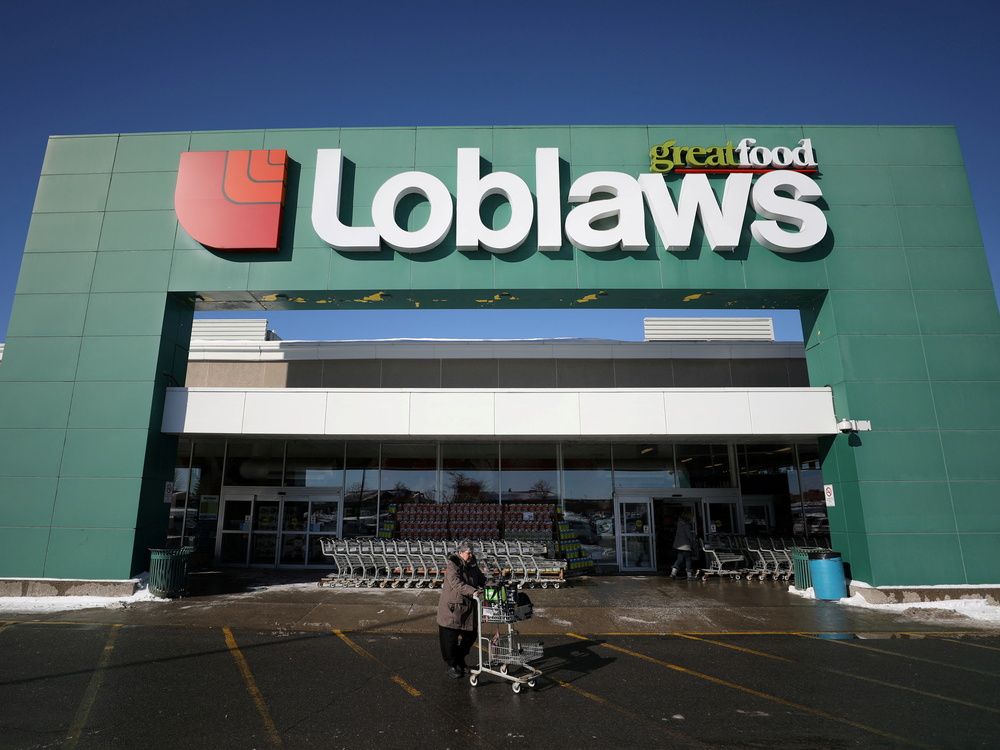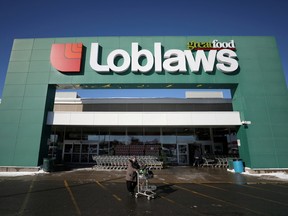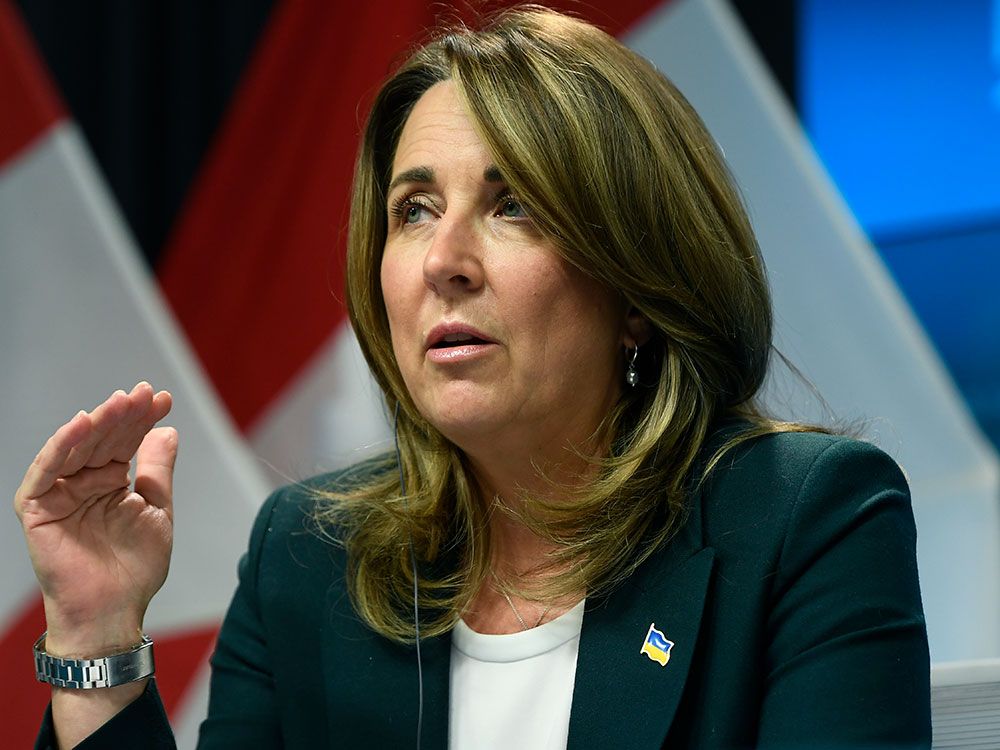Loblaw expects sales to grow amid high food inflation, pandemic

Loblaw reported a 30.1-per-cent increase in profits during its last quarter

Article content
Loblaw Companies Ltd., Canada’s largest food and drug retailer, expects the pandemic, and rising food inflation, will continue to drive sales in the first half of 2022, according to an earnings update on Thursday morning.
Advertisement
Story continues below
This advertisement has not loaded yet, but your article continues below.
Article content
Loblaw — a network of more than 2,400 stores, including Shoppers Drug Mart, No Frills and Real Canadian Superstore — reported a 30.1-per-cent increase in profits during its last quarter, with adjusted net earnings of $515 million beating the previous year by $119 million.
Restrictions aimed at containing the Omicron wave of COVID-19 infections led to strong demand for groceries in the last months of 2021, since many cancelled holiday plans and ate at home instead, Loblaw said. Revenues of $12.76 billion in the quarter beat forecasts of $12.62 billion, according to a preview note from Scotiabank analyst Patricia Baker. In Loblaw’s retail business, the adjusted gross profit margin was 30.9 per cent — up 150 basis points compared to the previous year.
Advertisement
Story continues below
This advertisement has not loaded yet, but your article continues below.
Article content
“Loblaw anticipates that in the first half of 2022 sales will benefit from the continued impact of the pandemic and elevated industry-wide inflation,” the company said in a news release, adding that it expects earnings per common share to grow “in the low double digits” in 2022, with higher growth in the first half of the year.
The report comes as Loblaw is locked in a public stand-off with a global snack manufacturer over the price of chips. PepsiCo Inc.’s Frito-Lay subsidiary, whose deep roster of chip brands includes Lays, Doritos and Tostitos, stopped shipping its products to Loblaw banners after the grocery chain refused to accept an increase in prices.
Industry leaders say the episode is an example of the tense talks happening across the food industry right now, as manufacturers pressure retailers to pay more for their products in an attempt to recoup the rising cost of ingredients, packaging, transport and labour. In the Canadian grocery business, retailers negotiate the wholesale cost of goods with suppliers, and then set their own retail prices in store. Loblaw is pushing back in those negotiations with suppliers, arguing that it is trying to offer the best value to customers.
Advertisement
Story continues below
This advertisement has not loaded yet, but your article continues below.
Article content
“When suppliers request higher costs, we do a detailed review to ensure they are appropriate,” spokesperson Catherine Thomas said on Feb. 18. “This can lead to difficult conversations and, in extreme cases, suppliers don’t ship us products.”
-

Potato chip giant Frito-Lay cuts off Loblaw in dispute over price hikes
-

Loblaw raises profit outlook on strong demand for groceries and other essentials
-

Union slams Loblaw over pandemic pay as company reports nearly $400M profit
-

Loblaw beefs up its outlook after a solid first quarter
Food inflation is at its highest in more than a decade, with grocery prices shooting up 6.5 per cent in January compared to the previous year, according to the latest Consumer Price Index (CPI) report from Statistics Canada. Loblaw said its internal food inflation measures trended slightly higher than CPI in the fourth quarter of 2021.
Advertisement
Story continues below
This advertisement has not loaded yet, but your article continues below.
Article content
Frito-Lay also reported earnings growth in a fourth-quarter update this month, with operating profit up 10 per cent year over year in North America, according to parent company PepsiCo Inc. The company also reported that higher commodity costs, mostly in packaging and cooking oil, had an “eight-percentage-point” drag on operating profit.
Frito-Lay doesn’t provide specific results on their Canadian operations in earnings updates. But Michael Graydon, head of the manufacturing lobby group Food, Health and Consumer Products of Canada, said in a recent interview that the Canadian operations of multinational food companies don’t operate at the same profit margins as their parent companies.
• Email: [email protected] | Twitter: jakeedmiston
Advertisement
Story continues below
This advertisement has not loaded yet, but your article continues below.









